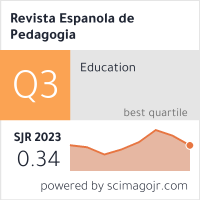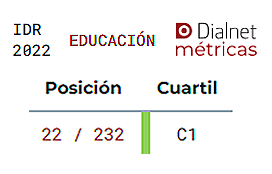Abstract
Philosophy with children is an ambitious pedagogical project based on a structured meditation on the conditions that make it possible and the object and aims of the educational process. This article presents a systematized overview of the main features of Philosophy for Children (P4C), considering it to be a multifaceted and plural approach that, despite the different theorizations proposed, still possesses some basic common traits. Starting from a review of the academic literature on the topic, this article presents some of the main conceptual and practical limitations of P4C, in relation to its theoretical insight and its practical implementation. These are potentially damaging criticisms, which, if not given serious consideration, could invalidate this educational approach. After a critical discussion of the weak points of P4C, this article shows the need to reframe clearly the nature of educational practice in general and how philosophical reflection in particular can contribute to it. Accordingly, educational experience is thought to be a radical process of creation of shared meaning by a community of inquiry involved in a shared rational and emotional search for truth. Consequently, this article proves the profound value of this educational approach, which can foster a well-rounded education of people and their full integration into the social and cultural context, enabling them to enjoy a flourishing and authentic life.
This is the English version of an article originally printed in Spanish in issue 275 of the revista española de pedagogía. For this reason, the abbreviation EV has been added to the page numbers.Please, cite this article as follows: Scotton, P. (2020). Pensar en común, vivir en plenitud. La experiencia de la filosofía para los niños y niñas | Thinking together, living fully. Experiencing philosophy with children. Revista Española de Pedagogía, 78 (275), 103-118. doi: 10.22550/REP78-1-2020-06
Referencias | References
Agúndez-Rodriguez, A. (2018). Programa de Filosofía para Niños como propuesta de educación moral: análisis comparado con otros enfoques de la educación moral. Childhood & Philosophy, 14 (31), 671-695. doi: 10.12957/childphilo.2018.34305
Aristotle (2014). Nicomachean Ethics. Indianapolis: Hackett Publishing Co. Berti, E. (2015). ¿Sabiduría o filosofía practica? Disputatio. Philosophical Research Bulletin, 4 (5), 155-173.
Biesta, G. (2017). Touching the Soul? Exploring an Alternative Outlook for Philosophical Work with Children and Young People. Childhood & Philosophy, 13 (28), 415-452. doi: 10.12957/childphilo.2017.30424
Biesta, G. (2019). What is the Educational Task? Arousing the Desire for Wanting to Exist in the World in a Grown-up Way. Pedagogía y Saberes, 50, 63-74.
Burgh, C. (2010). Citizenship as a learning process: Democratic education without foundationalism. In D. R. J. Macer & S. Saad-Zoy (Eds.), Asian-Arab philosophical dialogues on globalization, democracy and human rights (pp. 59-69). Bangkok: UNESCO.
Coppens, S. (1998). Some ideological biases of the Philosophy for Children curriculum. Thinking. The Journal of Philosophy for Children, 14 (3), 25-32.
Cortina, A. (1998). .Que es ser una persona moralmente educada? In F. Garcia Moriyon (Ed.), Crecimiento moral y Filosofía para niños (pp. 15-33). Zarautz: Desclee De Brouwer.
Costa-Carvalho, M., & Mendonca, D. (2017). Thinking as a community: reasonableness and emotions. In M. Gregory, J. Haynes, & K. Murris (Eds.), The Routledge International Handbook of Philosophy for Children (pp. 127-134). London-New York: Routledge.
Echeverria, E., & Hannam, P. (2017). The community of philosophical inquiry (P4C): a pedagogical proposal for advancing democracy. In M. Gregory, J. Haynes, & K. Murris (Eds.), The Routledge International Handbook of Philosophy for Children (pp. 3-10). London-New York: Routledge.
Freire, P. (2005). La pedagogía del oprimido. Buenos Aires: Siglo XXI.
Garcia Moriyon, F. (1999). Inteligencia emocional y educación moral. Emociones, sentimientos y vida afectiva. Aprender a pensar, 19-20, 61-69.
Garcia Moriyon, F., Robello, I, & Colom R. (2005). Evaluating Philosophy for Children: A meta-analysis. Thinking. The Journal of Philosophy for Children, 17 (4), 14-22.
Gasparatou, R. (2017). Philosophy for/with Children and the development of epistemically
virtuous agents. In M. Gregory, J. Haynes, & K. Murris (Eds.), The Routledge International Handbook of Philosophy for Children (pp. 103-110). London-New York: Routledge.
Gorard, S., Siddiqui, N., & See, B. H. (2015). Philosophy for Children. Evaluation report and executive summary. Durham: Durham University Press.
Gorard, S., Siddiqui, N., & See, B. H. (2017). Can ‘Philosophy for Children’ Improve Primary
School Attainment? Journal of Philosophy of Education, 51 (1), 5-22. doi: 10.1111/1467-9752.12227
Gregory, M. (2011). Philosophy for Children and its critics. A Mendham dialogue. Journal of Philosophy of Education, 45 (2), 199-219.
Grusovnik, T., & Hercog, L. (2015). Philosophy for Children as listening. Avoiding pitfalls of instrumentalization. Synthesis Philosophica, 30 (2), 307-317.
Johansson, V. (2018). Philosophy for Children and children for philosophy. Possibilities and problems. In P. Smeyers (Ed.), International Handbook of Philosophy of Education (pp. 1149-1161). Cham: Springer.
Kennedy, D., & Kennedy, N. (2011). Community of philosophical inquiry as a discursive structure and its role in school curriculum design. In N. Vansieleghem & D. Kennedy (Eds.), Philosophy for Children in transition: Problems and prospects (pp. 97-116). Chichester: Wiley-Blackwell.
Kitchener, R. F. (1990). Do children think philosophically? Metaphilosophy, 21 (4), 416-431.
Kizel, A. (2016). From Laboratory to Praxis: Communities of Philosophical Inquiry as a Model of (and for) Social Activism. Childhood and Philosophy, 12 (25), 497-517.
Kizel, A. (2017). Philosophic Communities of Inquiry: The Search for and Finding of Meaning as the Basis for Developing a Sense of Responsibility. Childhood and Philosophy, 13 (26), 87-103.
Kizel, A. (2019). Enabling Identity as an Ethical Tension in Community of Philosophical Inquiry with Children and Young Adults. Global Studies of Childhood, 9 (2), 145-155.
Kohan, W. O. (2014). Philosophy and Childhood: Critical Perspectives and Affirmative Practices. Basingstoke: Palgrave MacMillan.
Law, S. (2008). Religion and philosophy in schools. In M. Handand & C. Winstalney (Eds.), Philosophy in schools (pp. 41-57). London: Continuum.
Lewis, L., & Sutcliffe, R. (2017). Teaching philosophy and philosophical teaching. In M. Gregory, J. Haynes, & K. Murris (Eds.), The Routledge International Handbook of Philosophy for Children (pp. 200-207). London-New York: Routledge.
Lipman, M. (1974). Harry Stottlemeier’s Discovery. Montclair, NJ: Institute for the Advancement of Philosophy for Children.
Lipman, M. (1998). Pensamiento complejo y educación. Madrid: Ediciones de la Torre.
Lipman, M. (2003). Thinking in education. Second edition. Cambridge: Cambridge University Press.
Lipman, M., Sharp, M. A., & Oscanyan, F. S. (1980). Philosophy in the Classroom. Philadelphia: Temple University Press.
Lipman, M., Sharp, M. A., & Oscanyan, F. S. (1992). La filosofía en el aula. Madrid: Ediciones de la Torre.
Makaiau, A. S. (2015). Cultivating and nurturing collaborative civic spaces. C3 Teachers. Retrieved from https://bit.ly/2PhxtH1 (Consulted on 2019-11-11).
Matthews, G. B. (1982). Philosophy and the Young child. Harvard: Harvard University Press.
Michaud, O., & Valitalo, R. (2017). Authority, democracy and philosophy: the nature and role
of authority in a community of philosophical inquiry. In M Gregory, J. Haynes, & K. Murris (Eds.), The Routledge International Handbook of Philosophy for Children (pp. 27-33). London-New York: Routledge.
Murphy, P. K. (2009). Examining the effects of classroom discussion on students’ comprehension of text: A meta-analysis. Journal of Educational Psychology, 101 (3), 740-764.
Murris, K. (2015). The Philosophy for Children Curriculum: Resisting ‘Teacher Proof’ Texts and the Formation of the Ideal Philosopher Child. Studies in Philosophy and Education, 35 (1),
63-78. doi: 10.1007/s11217-015-9466-3
Murris, K. (2000). Can children do philosophy? Journal of Philosophy of Education, 34 (2), 261-279.
Naji, S., & Hashim, R. (2017). History, Theory and Practice of Philosophy for Children. London-New York: Routledge.
Nomen, J. (2018). El niño filósofo. Como enseñar a los niños a pensar por sí mismos. Barcelona: Arpa.
Oliverio, S. (2017). Parallel convergences: thinking with Biesta about philosophy and education. Childhoood & Philosophy, 13 (28), 589-603. doi: 10.12957/childphilo.2017.29953
Ortega y Gasset, J. (2010). Obras Completas. Madrid: Taurus.
Plato (1967-1979). Plato in Twelve Volumes. Cambridge, MA: Harvard University Press.
Prichard, D. (2013). Epistemic virtue and the epistemology of education. Journal of Philosophy of Education, 47 (2), 236-248.
Pritchard, M. (1998). Desarrollo moral y filosofia para ninos. In F. Garcia Moriyon (Ed.), Crecimiento moral y Filosofía para niños (pp. 69-112). Zarautz: Desclee De Brouwer.
Reed, R. F., & Johnson, T. W. (1999). Friendship and moral education. Twin pillars of Philosophy for Children. New York: Peter Lang.
Reed-Sandoval, A., & Sykes, C. A. (2017). Who talks? Who listens? Taking positionality seriously in Philosophy for Children. In M. Gregory, J. Haynes, & K. Murris (Eds.), The Routledge International Handbook of Philosophy for Children (pp. 219-226). London-New York: Routledge.
Reznitskaya, A., Glina, M., Carolan, B., Michaud, O., Rogers, J., & Sequeira, L. (2012). Examining transfer effects from dialogic discussions to new tasks and contexts. Contemporary Educational Psychology, 37 (4), 288-306. doi: 10.1016/j.cedpsych.2012.02.003
Shea, P. (2017). Do we put what is precious to us at risk through philosophic conversation? In M. Laverty & M. Gregory (Eds.), In community of inquiry with Ann Margaret Sharp. Childhood and education (pp. 161-173). London-New York: Routledge.
Singer, P. (1993). Practical Ethics. Cambridge: Cambridge University Press.
Soter, A. O., Wilkinson, I., Murphy, P., Rudge, L., Renignger, K., & Edwards, M. (2008). What the discourse tells us. Talks and indicators of high-level comprehension. International Journal of Educational Research, 47 (6), 372-391.
Splitter, L. (2006). Philosophy in a crowded curriculum. Critical and Creative Thinking: The Australasian Journal of Philosophy for Children, 14 (2), 4-14.
Sprod, T. (2011). Discussion in Science: Promoting conceptual understanding in the middle school years. Camberwell: Australian Council for Educational Research.
Sprod, T. (2014). Philosophical inquiry and critical thinking in primary and secondary science education. In M. R. Matthews (Ed.), International Handbook of Research in History, Philosophy and Science Teaching (pp. 1531-1564). Dordrecht: Springer.
Tian, S., & Liao, P. (2016). Philosophy for children with learners of English as a foreign language. Journal of Philosophy in Schools, 3 (1), 40-58.
Topping, K. J., & Trickey, S. (2007). Collaborative philosophical inquiry for schoolchildren:
Cognitive gains at 2-year follow-up. British Journal of Educational Psychology, 77 (2), 787-796. doi: 10.1348/000709906X105328
Trickey, S., & Topping, K. J. (2004). Philosophy for Children: A systematic review. Research Papers in Education, 19 (3), 365-380. doi: 10.1080/0267152042000248016
UNESCO (2007). Philosophy, a school of freedom: teaching philosophy and learning to philosophize, status and prospects. Paris: UNESCO Publishing.
Vaidya, A. J. (2017). Does Critical Thinking and Logic Education Have a Western Bias? The Case of the Nyaya School of Classical Indian Philosophy. Journal of Philosophy of Education, 51
(1), 132-160. doi: 10.1111/1467-9752.12189
Vansieleghem, N., & Kennedy, D. (2011). What is Philosophy for Children, what is Philosophy with Children – After Matthew Lipman Journal of Philosophy of Education, 45 (2), 171-182.
Wegerif, R. (2010). Mind Expanding. Teaching for Thinking and Creativity in Primary Education.
Glasgow: Open University Press.
Wegerif, R. (2011). Towards a dialogic theory of how children learn to think. Thinking Skills and Creativity, 6 (3), 51-70. doi: 10.1016/j.tsc.2011.08.002
Wegerif, R. (2018). A dialogic theory of teaching thinking. In L. Kerslake & R. Wegerif (Eds.), The Theory of Teaching Thinking. International Perspectives. London-New York: Routledge.
White, J. (1992). The roots of philosophy. In A. P. Griffiths (Ed.), The impulse to philosophise (pp. 73-88). Cambridge: Cambridge University Press.
Wittgenstein, L. (1971). Philosophische Untersuchungen. Frankfurt am Main: Suhrkamp.
Citación recomendada | Recommended citation
Scotton, P.
(2020)
.
Thinking together, living fully. Experiencing philosophy with children.
Revista Española de Pedagogía, 78(275).
https://www.revistadepedagogia.org/rep/vol78/iss275/8
Licencia Creative Commons | Creative Commons License
Esta obra está bajo una licencia internacional Creative Commons Atribución-NoComercial 4.0.
This work is licensed under a Creative Commons Attribution-NonCommercial 4.0 International License
Palabras clave | Keywords
criticalsense, educationalmethods, Educationalphilosophy, educationaltheories, thinking









